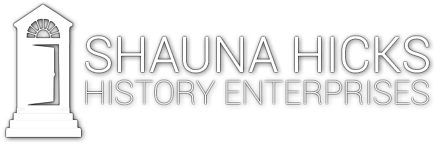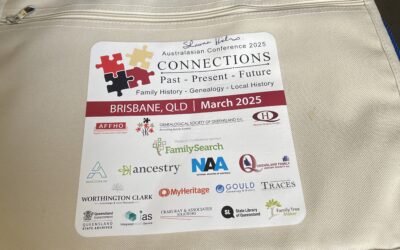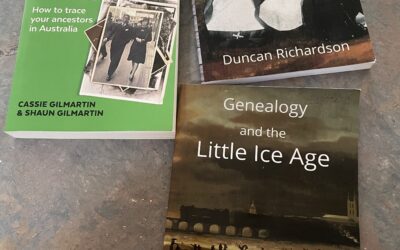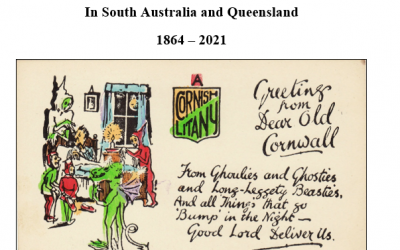At the weekend I attended the 3rd Australasian Scottish Genealogy Conference Catch The Moments Scotland 1750 to 1850: A Century of Transformation organised by the Scottish Ancestry Group of the Genealogical Society of Victoria (GSV).
It is the first conference I have attended in a very long time that I was not giving a paper or working behind the scenes so all I had to do was sit back and enjoy myself along with about 140 other people from Victoria, Queensland, New South Wales, Tasmania, South Australia, Canberra and New Zealand.
My Scottish ggg grandparents John Carnegie and his wife Helen Stratton and family arrived in Queensland in 1865 and although I have found them in parish registers and census records, I have never really looked into my Scottish heritage. I’ve investigated my Irish, Cornish, English and Norwegian heritage but never my Scottish for reasons unknown.
So for me attending this conference was all about getting in touch with my Scottish ancestors at long last. The two days covered 16 presentations, some were concurrent sessions and a range of live entertainment including bagpipes, Scottish dancing, singing, a Gaelic choir and a Ceilidh and dinner.
The first thing I did after registration on Saturday was to buy my copy of the Conference Notes: Catch The Moments Scotland 1750 to 1850: A Century of Transformation for $25 which included all the papers and for the bargain price of $10 I could also pick up the 2006 Conference Notes also packed with lots of good papers.
I should mention the conference satchel with a handy notebook, pen, pencil, various information leaflets and a 10 credits voucher for Scotlands People.
The other two trade tables were the GSV with a range of Scottish publications and how to books and Mapworks – both seemed to be kept busy during all the breaks!
The first plenary was Alex Tyrrell on Scotland 1750-1850 which was a good introduction and while his paper was more ‘academic’ he did use some interesting illustrations which helped me to start changing my views of Scotland. An image of late century Dundee showed it as small and quite rural whereas my mental image was a big city with lots of buildings. A number of the papers commented on Scotland’s small population and I kept telling myself that it was smaller back then than Melbourne today!
The next session was concurrent with a choice of Susie Zada talking about the Scots in Geelong & District or Tracing Military Ancestors with Sheena Tait, the keynote speaker. I went to the latter and I wrote down so many links to follow up I will never get up from my laptop! Sheena also listed a number of useful books because we have to remember, it’s not all online.
An interesting point was that some of the National Archives UK (TNA) military series have also been microfilmed by FamilySearch (LDS) and that you can order those films in to your local viewing place. To find them in the FamilySearch Library Catalogue just put in the TNA reference number eg WO97 or whatever.
After lunch, there was another concurrent session with Ian Breward talking about Scottish Church History 1750-1850 and John Blackwood talking about Scotlands People Website. Although I have heard others talking about Scotlands People, I still went to John’s talk as I never seen to be able to find what I want. I was very glad that I did because John spoke about the Help and Other Resources, especially the Research Tools on the website which provide lots of great background. Lists of occupations (over 1500), with descriptions of tools of trade, handwriting help and so on.
He also did a live demonstration with a few problems logging on, line falling out and a general slowness as always when using a laptop. However his search for wills and testaments was interesting and I had forgotten that search results for wills are free and there is quite a bit of identifying information so I added ‘search my Scottish names for wills’ to my to-do list.
The next concurrent session was a choice between Susan McLean talking on The Record Keeper – Kirk & State and Lucy Frost on Scottish Convict Women. I went to Lucy’s talk and it was an ‘academic’ paper which she read with no slides. It was very interesting and I had not realised the differences between Scottish convicts and other UK convicts. I will need to reread her paper as I find it hard to take in all that information in a single session just listening to someone.
The final plenary session for the day was Sheena Tait on Scottish Hand Loom Weavers which was very relevant to me as my ancestors were weavers in the Montrose area. Sheena was also reading her papers but she was using images from SCRAN which illustrated the points she was making. She also listed a number of websites and useful books.
The dinner was onsite (the Hemisphere Hotel at Moorabbin in Melbourne) and it was excellent food, with live entertainment and a demonstration of Scottish dancing with a variety of reels. I hadn’t realised Scottish dancing could be so complex and wondered whether my ancestors had known how to do those dances.
The first session on Sunday was a choice between Irene Fullarton’s Scotland’s Presence on the Web and Sheena Tait talking about The Scottish Agricultural Labourer. As I have ag labs in the family I went to Sheena’s but not before checking that Irene’s paper and all her URLs was in the Conference Notes. In her paper Sheena also talked about how ag labs lived – their accommodation, health care, clothing and what they did for entertainment which all helped to give a better idea of their lives.
The next session was a plenary with Eric Richards talking about the Highland Clearances. Another ‘academic’ paper which Eric read with no illustrations but very interesting which I will read again. I hadn’t realised there were also Lowland clearances as well .
As I mentioned above, I personally prefer talks where the speaker just talks to slides or overheads but then I am a very visual person who finds it hard to concentrate (all the time) when someone is just reading. I think too because I am a speed reader that I often think I can save time if I just read it myself!
After lunch Malcolm Horsburgh spoke about Dissenting Churches & Records and Margaret McLaren talked on Life in a Scottish Tenement. I went to the latter as I believe my ancestors were living in tenements and Margaret had some great illustrations that really brought home to me how small some of those places were, especially if there were lots of children. Also sharing a ‘water closet’ between two flats was an eye opener and not having backyards or places to play made me realise why children were always seen playing in the streets or ‘closes’.
The next session was a choice between Joy Roy on the Evolution of Planned Villages in Scotland and Joan Mitchell on Gaelic Scotland which I went to. As well as giving a history of the Gaelic language, Joan and her friends from the Scottish Gaelic Society of Victoria gave an example of Gaelic singing and folding the cloth.
In the afternoon tea break the Scottish Gaelic Society choir entertained us with a number of songs and if anyone wants to listen to a Gaelic song, try looking up Ishbel MacAskill on YouTube.
The final plenary was Sheena Tait on Picture The Past where she covered a range of material including statistical accounts, maps, gazetteers, images, pictures. Again I ended up with a long list of URLs to look at, many I hadn’t encountered before.
For all the sessions that I didn’t attend, I now have to read those papers and no doubt there will be a lot of references to follow up. As I indicated above, I am also keen to reread some of the sessions I attended too as there was just so much to take in.
The venue was really good, lots of free parking and getting afternoon tea and lunch was easy with everything well laid out so that lengthy queues were not an issue. Plus there was plenty of food, healthy sandwiches and rolls with fruit for lunch and muffins and French pastries for afternoon tea. Personally I would have liked to see some Scottish shortbreads or other Scottish food (and at the dinner too) but perhaps the Hemisphere’s chefs weren’t up on that specialised area.
The whole two days was really well organised, all the speakers kept to the theme and to time, the publication of all the papers was a plus (now for sale in the GSV online bookshop, and overall the conference was great value. I have a much greater appreciation for what it means to be Scottish or of Scottish descent and lots of things to follow up in those spare moments.
Congratulations to the organising committee on putting it all together. I am already looking forward to the next one!!





Hi Shauna, You don’t know me but we have crossed paths many times. I’m now very sorry that I missed this conference as at least 80% of what you have mentioned is relevant to my research. You also have similar heritage to mine with Irish, Cornish, English and Norwegian. It sounds like I should get the papers to brush up on what transpired. Thank you for synopsis. Kind regards, Viv Martin
Thanks for the comprehensive report Shauna, I’m sorry the gig wasn’t in Sydney.
I agree about catering to different learning styles in presentations. Slides, illustrations, audio and video can cater for the diverse needs of individuals.
Thanks for the rundown Shauna.
I will have to order the papers as much of what you have written is relevant to me also.